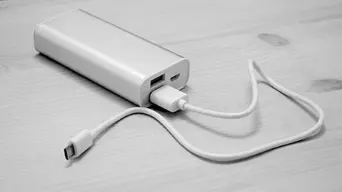International Air Transport Association limits power banks, charging devices on flights
Tasleem Gierdien
3 November 2025 | 9:09The adjustments regarding power banks and batteries are part of the Dangerous Goods Regulations (DGR).

A powerbank. (Wikimedia Commons)
The International Air Transport Association (IATA) has introduced new rules governing the transportation of power banks and battery-powered devices on aeroplanes.
These updates are part of IATA’s 2026 edition of its key operational manuals for cargo and ground handling, which include around 100 major amendments and revisions to align with updated global safety standards. The new battery-related requirements are contained within the Dangerous Goods Regulations (DGR).
The changes address safety concerns surrounding lithium-ion batteries, which are widely used in modern electronic devices such as smartphones, laptops, and wearables.
Although incidents are extremely rare, lithium-ion batteries can pose fire or explosion risks if damaged or mishandled. IATA noted that the volume of lithium-ion batteries transported by air as cargo has increased by 25% year over year, highlighting the importance of stricter controls.
Under the new regulations, spare batteries and power banks are strictly prohibited in checked luggage. Fires in the aircraft’s cargo hold can be difficult to detect and extinguish, posing a safety hazard.
Additionally, charging batteries or power banks using in-seat or in-flight power is no longer permitted at any time during the flight. Passengers are also prohibited from charging or using these devices to power other electronics during taxi, takeoff, or landing.
Power banks and spare batteries must not be stored in overhead lockers. Instead, they must be kept under the seat in front of the passenger or in another designated location, such as a seatback pocket.
Finally, lithium-ion cells with capacities of 20 watt-hours (Wh) or higher, and batteries over 100Wh that are packed with equipment, must be maintained at no more than 30% state-of-charge before transport.
Guy Leitch, an aviation analyst at SA Flyer, says, "Baggage gets chucked around, so if power banks do get damaged, the cells can start spontaneously combusting. The thing about these lithium-ion batteries is they're self-propagating and they are extremely difficult to put out, especially if they're in a hold."
To listen to Leitch in conversation with Clarence Ford on CapeTalk's Views and News, click below:
Get the whole picture 💡
Take a look at the topic timeline for all related articles.
















